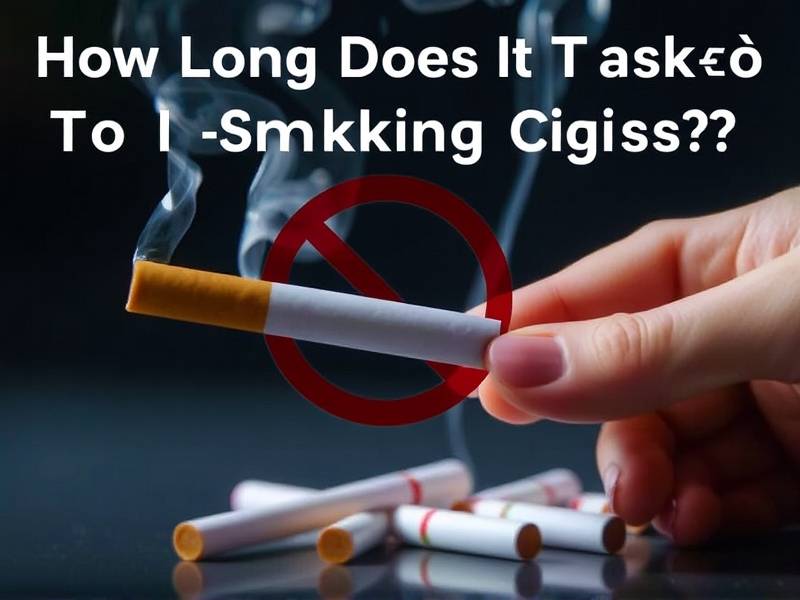How Long Does It Take to Quit Smoking Cigs? A Comprehensive Guide
Understanding the Challenge
Quitting smoking cigarettes is a significant step towards a healthier life. However, many smokers find themselves wondering: how long does it take to quit smoking? The journey is unique for each individual, influenced by various factors such as nicotine dependence, personal motivation, and the strategies employed.
The Science of Nicotine Dependence
Nicotine, the addictive substance in cigarettes, affects the brain's reward system. When you quit smoking, your body goes through a withdrawal process. On average, it takes about 72 hours for nicotine levels in your bloodstream to drop significantly. But the physical addiction is just one part of the puzzle.
Stages of Quitting Smoking
-
Preparation Phase

- This stage involves setting a quit date and preparing mentally and physically.
- Consider using aids like nicotine replacement therapy (NRT) or prescription medications.
-
The First Week
- Symptoms like irritability, cravings, and anxiety are common during this time.
- Stay hydrated and try to manage stress with relaxation techniques.
-
The First Month
- Withdrawal symptoms may start to subside as your body adjusts.
- Celebrate small victories and maintain a support system.
-
The First Three Months
- You'll likely face more challenges during this period.
- It's crucial to stay focused on your goal and avoid triggers.
-
The First Year
- By now, most of the physical symptoms should have resolved.
- Focus on maintaining your new smoke-free lifestyle.
Strategies for Success
-
Set Realistic Goals
- Break down your quitting journey into manageable milestones.
-
Seek Support
- Share your plans with friends and family for moral support.
- Consider joining a support group or seeking professional help.
-
Identify Triggers
- Be aware of situations that make you want to smoke and plan how to handle them.
-
Alternative Activities
- Distract yourself with new hobbies or exercise routines when cravings hit.
-
Reward Yourself

- Set up a reward system for reaching each milestone in your quitting journey.
Emerging Trends in Smoking Cessation
In recent years, technology has played a significant role in helping smokers quit. Apps that track progress, provide motivational messages, and even use virtual reality (VR) to simulate smoking cessation are becoming more popular.
Long-Term Health Benefits
The benefits of quitting smoking are substantial and include reduced risk of heart disease, stroke, cancer, and respiratory diseases. Your body starts healing almost immediately after you quit—within just 20 minutes after your last cigarette!
Conclusion
The question "How long does it take to quit smoking?" doesn't have a one-size-fits-all answer because every individual's experience is different. By understanding the stages of quitting and employing effective strategies, you can increase your chances of success. Remember that persistence is key—quitting smoking is a journey worth taking for the sake of your health and well-being.
